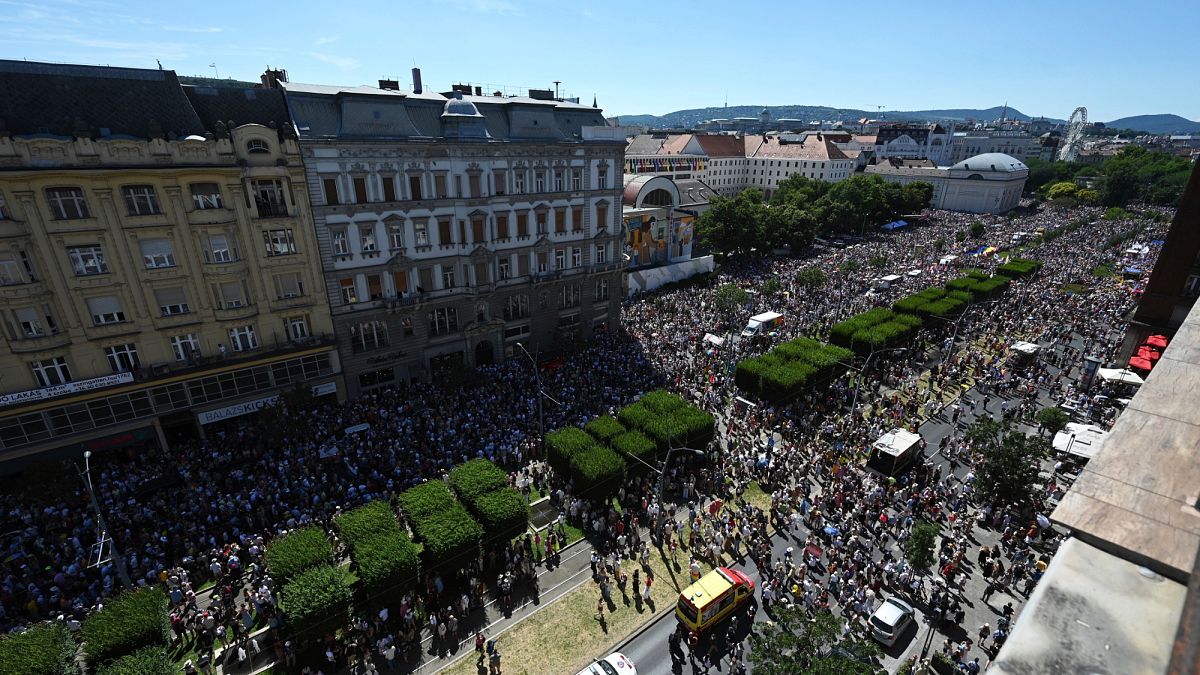
"Around 100,000 people marched in Budapest's 30th Pride parade on Saturday, defying a government ban. This event marked Hungary's largest LGBTQ+ demonstration, highlighting significant public dissent."
"Despite threats of fines and police surveillance, the participants united to protest Prime Minister Orbán's crackdown on LGBTQ+ rights, showcasing a resolve for civil liberties."
"The police diverted the march from its planned route to avoid confrontations with far-right counter-protesters, emphasizing the tense political climate surrounding the event."
"The parade, supported by the city's mayor, was seen as a vital stand for democracy and reflected a growing opposition to the policies of Prime Minister Orbán."
The 30th Pride parade in Budapest, attended by approximately 100,000 people, marked Hungary's largest LGBTQ+ event, defying a government ban and police orders. Despite potential fines and surveillance, participants rallied against Prime Minister Orbán's ongoing repression of LGBTQ+ rights, which was rooted in restrictive legislation passed in March. The police altered the march route to steer clear of far-right counter-protesters, revealing the underlying tension surrounding LGBTQ+ rights in Hungary. The event, bolstered by municipal support, was viewed as a significant demonstration for democracy and civil liberties in an increasingly authoritarian political context.
Read at euronews
Unable to calculate read time
Collection
[
|
...
]